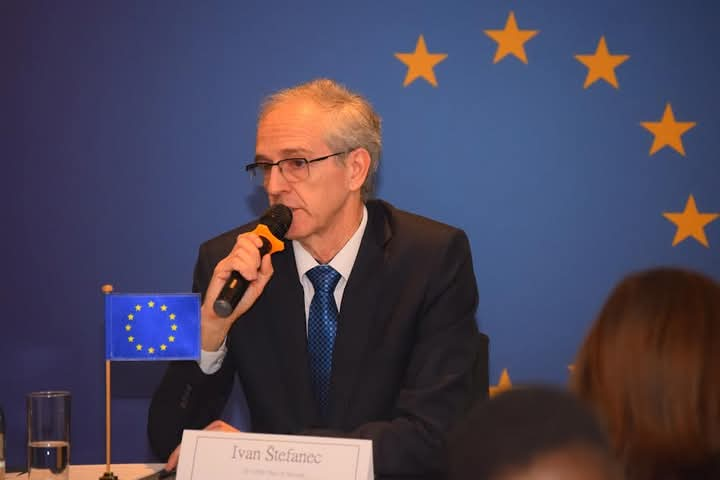The European Union (EU) has Warned that Delays in Implementing Key Reforms could undermine Kenya's 2027 General Elections.
Head of the EU Follow-Up Mission, Ivan Stefanec, pointed out the lack of tangible progress in adopting 21 recommendations made after the 2022 election, seven of which were identified as top priorities.
According to Stefanec, the seven priority recommendations include providing funds to the Independent Electoral and Boundaries Commission (IEBC) for continuous voter education and implementing improvements in electoral technology through regular audits and stakeholder consultation.
Others include operationalising the Election Campaign Financing Act to regulate campaign expenditures effectively, detailing the legal definition of hate speech in line with international human rights obligations, removing sections 22 and 23 of the Computer Misuse and Cybercrimes Act, and establishing clear procedures for managing staff and the flow of information at tallying centers to increase the consistency and efficiency of the electoral process.
“The delay in appointing new IEBC Commissioners has led to the postponement of by-elections and boundaries delimitation, has halted continuous voter registration, and compromised the overall preparations for the 2027 election,” stated Stefanec.
The Head of the EU follow-up Mission stressed the importance of reconstituting the IEBC without further delays and the provision of adequate funds to enable the commission to prepare for the 2027 election.
He added that the government should also ensure there is continuous voter registration, operationalisation of the Campaign Finance Act, and clear legal frameworks for hate speech and disinformation.
The Head of the EU follow-up Mission said the reconstitution of the IEBC will enable the citizenry to register as voters, exercise their right to vote and stand as candidates, in line with Kenya's international and regional commitments.
Stefanec told IEBC to build trust in its work, to strengthen its independence, and to ensure transparency in the electoral process while fostering inclusion and cooperation among electoral stakeholders.







